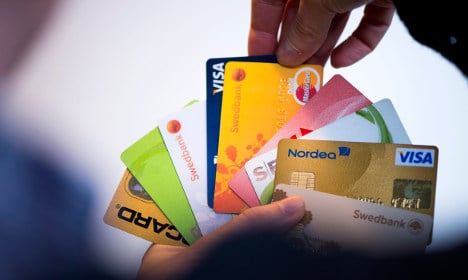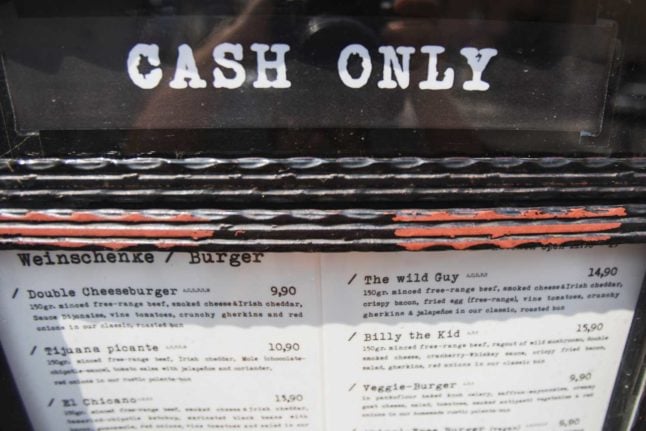Buy a magazine from a homeless person in Stockholm, and it’s increasingly likely that they will let you pay by card. It’s perhaps the most extreme sign of the transition to a cash-free society, which has arguably gone further in Sweden than anywhere else. Those who face losing out used the Almedalen political forum on Gotland this week to launch a campaign to halt the move to plastic.
Björn Eriksson, a former head of Sweden’s national police and now head of Säkerhetsbranschen, a lobbying group for the security industry, is cynical about the banks’ motivations: “It’s in banks’ interests to reduce use of cash. They take fees for card payments, not cash payments,” he says.
According to a report by the Swedish Federation of Trade last year, four out of five purchases in Sweden are made by credit or debit card, compared to just one in four in cash-loving Italy. Increasingly, technology such as iZettle allows small businesses to take card payments via smartphones.
While the banks, most retailers and many consumers have welcomed the move away from cash, there are concerns that many people are falling between the cracks. Björn Eriksson now leads an alliance of the security industry (which is seeing a falling demand for cash transport), pensioners’ groups and small business lobbyists, which claims that a society dependent on cards particularly hurts small businesses and pensioners.
There’s also the question of privacy. While Eriksson cheerfully admits that his industry has a vested interest in keeping cash, he insists that the disappearance of cash raises big integrity issues, as banks are able to build a very detailed picture of customers’ consumption patterns:
“Swedes see the banks almost as state-run organizations rather than the private companies that they are,” he says. “Foreigners ask me how Swedes can have such faith in the banks,” he says.
READ ALSO: Small businesses seek help in cashless Sweden
There are more practical issues too. People in rural areas also lose out, as cash machines (ATMs) that are under-used risk being removed – a move that particularly affects rural pensioners.
Sweden’s fifth smallest bank – Mjöbäcks Sparbank – recently resorted to paying customers in the small town of Överlida to make cash withdrawals to encourage them to use the cash machine. CEO Tomas Andrén said cash must continue to exist, but added that with cash use falling by 8-10 percent a year it was becoming harder to maintain cash machines in rural areas.
Meanwhile, many bank branches refuse to handle cash altogether. In a situation repeated across Sweden, two of the main bank chains in Gotland’s largest town, Visby, refuse to handle cash, citing security concerns.
“I’ve heard of people keeping cash in their microwaves because banks won’t accept it,” Eriksson says.
Yet despite all these concerns, the prospect of Sweden reversing its move away from cash is remote. Jan Ericsson, an MP for the centre-right Moderates who sits on the Riksdag’s finance committee says “we can’t stop the move away from cash.”
“The Riksdag has looked at forcing banks to take cash, but it transpired that this risked leading to them closing their branches in small towns.”



 Please whitelist us to continue reading.
Please whitelist us to continue reading.